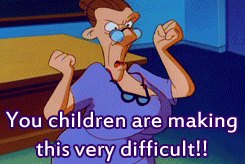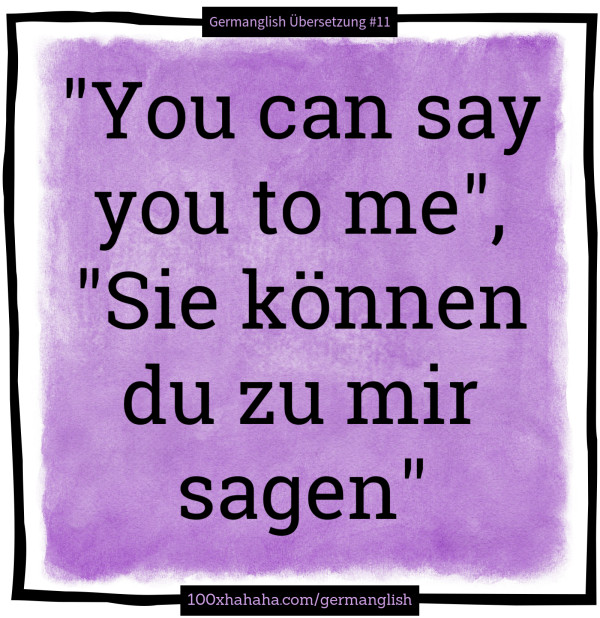Hi everybody!
Except for this introduction, this post is brought to you by me from the past 😉 Well, I guess all of my posts are, but this is the first post I have ever prewritten and finished more than a week before posting it – trust me, I am very proud of this achievement 😁
Anyway, this is just to let you know I’m still alive – barely 😅 I am very much struggling not to panic in light of the fact that I will literally be taking exams for a total of fourteen hours next week… I feel so underprepared!
However, three weeks ago, I decided I might as well kill two birds with one stone and dedicate this post to the one subject I haven’t been studying for at all: Translation. *Shudders*
There just isn’t really much I can do at this point, so since I have a ton of stuff to memorize for my other subjects, I’ve decided to just hope for the best… But I thought writing this post might help ease my conscience, at least a little 😉 So I hope you enjoy!
Also, just to warn you, this is a rather long post – so go ahead and grab something to eat and drink, tune in, and relax!
Translation and I, we’ve always had a complicated relationship.
On the one hand, translated children’s books were a huge part of my childhood. There were so many that I loved and that helped shape me into the person I am today! My parents must have spent hours reading Astrid Lindgren’s books (originally Swedish) to me over and over again, for instance…

Yet, at the same time, I have also come across dubious English-German translations of some of my favorite books that absolutely infuriated me when I first encountered them. Translations of perfectly good Latin imperative forms like obliviate into gibberish spells in the German versions of Harry Potter. Changing Gwendolyn to Gwyneth in the English version of Kerstin Gier’s Ruby Red trilogy. Renaming the O’Sullivan twins Hanni and Nanni in the German translations of Enid Blyton’s St. Clare’s series… Considering their parents’ naming skills, I truly feared for the children of some of these translators!

Yes, I was harsh. I made fun of translations whenever I could. I may have been just a tiny bit brutal.
And then, suddenly, I had to translate things myself. Oh boy, I quickly became so much more forgiving! My respect for translators grew enormously. These people do not get enough credit! Seriously, they deserve so much more than being seen as those nameless people who wrote a crappy version of a good book in a different language! Because that’s not how it works at all. And university translation classes really helped open my eyes!
Seemingly harmless constructions, it turned out, could cause enormous problems. Sometimes, I would spend well over an hour thinking about how to translate one single word.

So anyway, to give you an idea of how much work goes into translation, and how little thanks the translators actually receive for it, I thought I would give you three detailed examples of some simply awful things I encountered during my studies 😁
#1 “He was the stone”

My translation career at university already started with a bang. As my friends still like to remind me to this day, my translation teacher and I came very close to blows – over a pronoun.
To give you some context: Every week, a different student in our class had to present their translation of a text our teacher had picked out the week before. Well, eventually, it was my turn. We were translating a passage from Robert Jordan’s Wheel of Time series, and ran across this:
While nations rose and fell, were replaced and fell anew, the Stone stood. It was the rock on which armies had broken spears and swords and hearts for three thousand years.
From: Robert Jordan, The Shadow Rising (1992)
For those of you who are interested, this was what I translated:
Während Völker aufstiegen und untergingen, ersetzt wurden und abermals untergingen, blieb der Stein stehen. Es war der Stein, an dem Heere drei tausend Jahre lang Speere und Schwerter und Herzen gebrochen hatten.
To understand why this translation lesson escalated, though, you don’t need to understand any of the details. All you need to know is that German is a language with grammatical gender, and Stein, the word for ‘stone’, is a masculine noun. And er (= ‘he’), not es (= ‘it’), is the corresponding pronoun.
Anyway, our teacher got really mad at me, telling me I had made a “beginner’s mistake he might have expected from high school students, but certainly not someone who ever wanted to become an English teacher.” Yeah, he wasn’t the nicest.
The thing is, though – I am still, to this very day, convinced that the teacher was WRONG. There are certain contexts in German, when you want to put emphasis on the property of something rather than the object itself, where you can use a neuter pronoun no matter what grammatical gender the thing has.
In case you don’t believe me and know a bit of German, here are a few examples:
Wer waren diese Leute? – Das waren meine Eltern.
[Who were those people? – They (but literally: it) were my parents.]
Letzte Nacht war so toll! Es war die schönste Nacht meines Lebens!
[Last night was absolutely amazing! It (but: the German word for night, Nacht, is grammatically feminine) was the best night of my life!]
This is an incredibly common German construction, and every single other native speaker I have asked prefers the versions with the neuter pronoun over those where the pronoun actually matches the gender and number of the noun it refers to. I have no idea why, or what the rule is. If you’ve ever studied German as a foreign language and happen to have stumbled across one, please let me know! Because you certainly can’t do this in all contexts! [I think it might work whenever you can also use es handelte sich um (meaning ‘it was’) instead of the er/sie/es/sie war(en) (also ‘it was’) construction, though I don’t know what the rule for that is, either…]
However, I do know that in this context, referring back to the stone with the masculine pronoun sounds absolutely unnatural to me. It puts way too much emphasis on the stone (as opposed to other stones) than on why the stone is important.
My teacher, however, did not want to hear any of this. And when my other classmates started to back me up, he got furious, ranting on and on about the decline of the German language due to the incompetence today’s youth. The lesson basically ended with him shouting at me, until I finally agreed to accept “the wrongness of my opinion”.

To this day, I am still seething about this incident, and “Er war der Stein” has become a legendary translation fail among my fellow English students.
Oh, and in case you’re curious: I was bitter enough to search for the official translation in a bookstore and check what the actual translator, Uwe Luserke, did. And I have to say – you can tell he is a professional, because he managed to avoid the problem very elegantly:
Während Nationen und Reiche aufblühten und fielen, ersetzt wurden und wieder zerfielen, stand der Stein unverrückbar. An diesem Felsen waren dreitausend Jahre lang Speere und Schwerter und Herzen und ganze Armeen zerbrochen.
The critical part literally translates to ‘On this rock spears, swords, hearts and entire armies were broken for three thousand years.’ – and it sounds absolutely poetic in German. Soooo much better than any type of ‘it was’ construction! In fact, those types of sentences are actually way more common in English anyway, since English has strict Subject-Verb-Object word order – you can’t put focus on “the stone” by fronting it if you don’t also include some type of subject… But in German, we have case markings, which means we can mix up our word order quite a bit 😉
So yeah, I guess I actually learned quite a bit from this incident. Sometimes, you’ve got to think about why a language might put things a certain way, and rather than translating stuff literally, you might want to see if there’s a better, more natural way of putting it!
#2 “There is no there there.”
This situation wasn’t as frustrating as the “He was the stone” one, but it wasn’t the greatest highlight of my translation career, either. It was part of this year’s translation final, and, of all things, we had to translate a book review. And one of the sentences in it was this absolute beauty:
There There, Tommy Orange’s polyphonic debut novel, takes its title from Gertrude Stein’s cutting line about Oakland, California: “There is no there there.”
From: Alexandra Alter, “Tommy Orange on how he wrote a new kind of Native American Epic”, The Independent (22 June 2018)
My pathetic attempt at translating this was:
Der Titel von There There, Tommy Oranges vielstimmigem Debütroman, geht auf Gertrude Steins schneidende Bemerkung über die kalifornische Stadt Oakland zurück: „Dort gibt es kein ,there, there‘“ (wobei sich „there“ hier sowohl auf den Ort (,dort‘) als auch die beschwichtigende Redewendung „there, there“ beziehen kann).
You don’t have to know German to be able to tell how stumped I was by “There is no there there.” The length of my translation speaks for itself.
First of all, I wasn’t even completely sure what Gertrude Stein’s “cutting line” meant. She probably wanted to sound really sophisticated and literary, not knowing that her words would be used to torture poor translation students in the future. I assumed, however, that she was alluding both to the place (Oakland) and the saying “there, there,” something a parent might use to calm down their child. Since this saying has absolutely no equivalent in German, and translating ‘there’ literally makes absolutely no sense in this context – not to mention that it wouldn’t refer back to the title – I decided to just not translate that part and put the explanation in brackets.

And oh boy – I sure got marked down for that. Our teacher wrote “never add anything that isn’t in the text!!!!!!!” with about a million exclamation points next to it. Ooops.
So we asked – how should we have translated it, then? And she said: “Well, in this case, it’s best to leave the English quote as it is. But don’t explain it. However, I would still have marked you down for that, because you should translate everything in a way so that German readers can understand it.” Well, that’s nice to know 🙈
But you know the best part about all of this? We actually found the book this review talked about, and it turns out that the translator didn’t really know what to do with it, either. So he just translated the title literally. Talk about confusing German readers 🙄

#3 The Drunken Genie
Translating from English to German wasn’t the only thing that caused problems. The other direction wasn’t any better at all.
The following sentence is from a newspaper article criticizing some of Tony Blair’s reform policies:
Der Geist des Föderalismus ist aus der Flasche entwichen, die Blair entkorkt hat.
From: Jürgen König, ‘Die Briten bleiben mit Blair auf Reformkurs’, Die Zeit (19 September 1997)
This was my translation attempt:
The spirit of devolution has escaped from the bottle which Blair has uncorked.
It sounds weird and unnatural, doesn’t it? Well, the problem was, that I could not for the life of me figure out what to do with the German word Geist, which can, among a number of other things, mean ‘ghost’, ‘genie’, ‘spirit’, ‘idea’.
The German author was obviously using the image of a genie (=Geist) escaping from its bottle (or lamp, if you will) to show that a new idea (=Geist) was becoming prevalent. The problem was, I did not know how to simultaneously translate both of these things. Metaphors really are a translator’s worst nightmare!

I decided, in this case, the idea was the more important part, especially regarding the rest of the text. But an idea escaping from a bottle made absolutely no sense. So I decided to go with “spirit”. At least that had some sort of connection to bottles, even if you were more likely to think of vodka than genies…
Let’s just say, our teacher wasn’t that impressed, either. However, he did say that there wasn’t really any good way to deal with this. Of course, you could go with a free translation instead and avoid metaphors altogether, but that would mean not staying true to the style of the original. Sometimes, there’s just no good way to do it.
So yeah – translation is tricky. And before I gave it a try myself, I may have been a bit too harsh. Translators are doing their best so that we can appreciate texts we wouldn’t be able to read otherwise, and I think that’s great!
And yet, there will always remain certain stories which will stay out of your reach forever if you don’t learn the language.

A prime example for this is the Sams series by Paul Maar. These are some of the most popular children’s books in all of Germany, but there is simply no way they can be translated. Even the premise doesn’t work:
The story follows Mr. Taschenbier, a man who had a very strange week. On Sunday, the sun shone. On Monday, his friend Mr. Mon came to visit him bringing poppy flowers. On Tuesday, he had to work. Wednesday was the middle of the week. On Thursday, it thundered. On Friday, he didn’t have to work. So on Saturday, the Sams (an obnoxious being that can grant wishes) came.
Are you utterly confused? Maybe you thought you saw a pattern after the first two, but then, not so much. This is because the entire book relies on wordplay regarding the days of the week, which are:
- Sunday – Sonntag (Sonne = sun, Tag = day)
- Monday – Montag (Mohn = poppy)
- Tuesday – Dienstag (Dienst = work)
- Wednesday – Mittwoch (Mitte = Middle, Woche = Week)
- Thursday – Donnerstag (Donner = thunder)
- Friday – Freitag (frei = free, not having to work)
- Saturday – Samstag
Yeah, somehow, this premise doesn’t really translate well at all. And even if you could figure out some way to get around the problem, the rest of the book is full of other nontranslatable puns…
There is this one chapter, for instance, where the Sams goes to school and infuriates the teacher because it deliberately misunderstands him and asks if he is a woman. This is due to the teacher insisting that it address him using the polite, formal form of ‘you’ (German: Sie), which happens to coincide with the German pronoun sie, meaning ‘she’.

English, though, doesn’t even have two forms of you. The less formal one (thou), was lost several hundred years ago. And even other languages, which have both forms, probably couldn’t get away with the word play aspect of it…
So, despite being a bestseller here, the Sams series is untranslatable. I’m sorry, but you’re just going to have to learn German if you want to read it 😉
Don’t feel offended, though! English has its untranslatable gems as well. Here is a personal favorite of mine:
Candidate for a Pullet Surprise
by Mark Eckman and Jerrold H. Zar
I have a spelling checker,
It came with my PC.
It plane lee marks four my revue
Miss steaks aye can knot sea.
Eye ran this poem threw it,
Your sure reel glad two no.
Its vary polished in it’s weigh.
My checker tolled me sew.
A checker is a bless sing,
It freeze yew lodes of thyme.
It helps me right awl stiles two reed,
And aides me when eye rime.
Each frays come posed up on my screen
Eye trussed too bee a joule.
The checker pours o’er every word
To cheque sum spelling rule.
Bee fore a veiling checker’s
Hour spelling mite decline,
And if we’re lacks oar have a laps,
We wood bee maid too wine.
Butt now bee cause my spelling
Is checked with such grate flare,
Their are know fault’s with in my cite,
Of nun eye am a wear.
Now spelling does knot phase me,
It does knot bring a tier.
My pay purrs awl due glad den
With wrapped word’s fare as hear.
To rite with care is quite a feet
Of witch won should bee proud,
And wee mussed dew the best wee can,
Sew flaw’s are knot aloud.
Sow ewe can sea why aye dew prays
Such soft wear four pea seas,
And why eye brake in two averse
Buy righting want too pleas.
Wanna give that a try? I’d be impressed by a translation into any language, really!
And that was it for today! I know this was a very long and very different post from my usual ones – Though, in all honesty, do I even have ‘usual posts’? 😅 – so let me know what you thought of it!
Have you ever had to translate things and deal with this kind of frustration? Have you read any translated books that you would recommend? Let me know down in the comments! It might take me a bit longer than usual to answer them, but I’d still genuinely love to know!
Also, if the topic of translation interests you, I highly recommed you go check out Line at First Line Reader’s series about the Danish translations of Harry Potter. Trust me, they’re some of the best things I’ve ever come across on the internet!


This is such a great post! I did my degree in translation and interpreting and only did one semester of literary translation into French and it was so difficult! I have so much respect for literary translators! Metaphors and difficult to translate concepts, such as the Sams series were the bane of my existence in that class which is why I’m sticking to medical translation and news articles/press releases 😅 And I can definitely relate to having some questionable translation teachers! I did French into Spanish translation on my year abroad (my two second languages!) and I had a teacher try and tell me I was wrong for translating a verb to its equivalent in Spanish when the two verbs are all but identical in the two languages and there was no metaphorical meaning to it! So frustrating!
LikeLiked by 1 person
I’m glad you enjoyed it! 😊 I have so much respect for anyone working in this field!
I think medical translation and press releases sound horribly difficult too, though 😅 You probably need so much inside knowledge and specific vocabulary! And some of the worst metaphors I’ve come across have actually been in newspapers 😉 I think I might actually prefer the literary texts, just because at least I’m more passionate about the content there 😁 But you’re right, some of the concepts in those can be a real pain!
And, although I’m sorry you also had to deal with a self-righteous teacher, I am so glad I’m not alone! 😂 Honestly, some people just seem to have to lord their expert status over you all the time, even when their arguments are clearly flawed!
LikeLiked by 1 person
Great post and very accurate about the experience of translation! I took a couple of translation classes in university too and they definitely changed the way I view and judge “weird” translations. Translating things from one language to another, especially when they differ a lot, is extremely hard.
Translating from Greek to English and vice versa I remember facing the same difficulties you describe here. Greek is also a language with grammatical genders and we also have the formal “you” and complex verb and noun conjugation and these were the biggest obstacles I faced when translating into English, which doesn’t have any of these things. Another issue was the fact that all English sentences need to have the subject in them, whereas in Greek we mostly ommit it. The first drafts of our translations were always messy because of that. Not to mention the different cultural contexes each language operates in. I totally feel you on the nightmare that are the untranslatable stuff. Just thinking of translating either the Sams series or that English poem gave me a headache.
I have so much more respect for translators after taking those classes and I feel the need the need to defend them whenever people comment on translated movie titles, for example, that don’t fully correspond to the original ones.
LikeLiked by 1 person
I’m so glad you could relate! Some of those English idiosyncrasies really drove me nuts during my translation classes 😅 For example, I never noticed how many vague pronoun references German can get away with until I ended up with English sentences like “It landed on it next to it”, where all those enlightening gender distinctions were suddenly gone 😂 You seriously need to repeat things so much more often! But at least I never had the subject problem – there are German sentences that don’t have one, but those are extremely rare. I can see how that would be frustrating, though – its always hard when there is no comparable construction in the language you’re translating to! Though you’re right, references to cultural contexts top it all in terms of difficulty!
And yes, I agree regarding the movie titles thing! Sometimes, a different title can do a story a lot more justice in a different language. Though, personally, I still really hate when translators decide to start changing people’s names. I’ve never seen the point – don’t we want to expose people to other cultures? 🤔
LikeLiked by 1 person
I agree on the changing of names. I’ve only seen one case where the change was reasonable, in the dubbed version of Avatar the Last Airbender. There’s a character in the original named Katara, which is also the Greek word for curse, so they changed her name to Tamara when dubbing it to Greek for obvious reasons 😅.
LikeLiked by 1 person
Names that sound inappropriate in another language might just be the only reason I’m willing to accept for translating them, too 😉 I actually ran across something similar in Kristin Cashore’s Graceling trilogy – one of the characters is called Po, which means “butt” in German. I guess it would be a little awkward to have a character named Butt running around, so I do actually agree with the translator’s choice to rename him Bo there 😂 And here and with Katara, you can still tell that the translators tried to stay close to the original name, which I really appreciate! You can tell they put some thought into the renaming process 😊 But I think that cases like these might be the only exception to my aversion to translated names!
LikeLiked by 1 person
I obviously love this a lot!
Translations can be so difficult, and one of your teachers said it really well: that sometimes there’s just no good way to deal with it. You have to decide what is most important about the translation, and I think that choice is what made me interested in translations in the first place. It reminds me of how I at university took a class on translating legal documents. That really made me appreciate the work of translators. Damn, that was hard! Sentences that go on forever with words you’ve never before heard in your life and words you think you know don’t mean what they usually do.
My German is not good enough to judge your translations, but I will say that I think “Es war der Stein” sounds better. I have zero grammatical arguments to back it up, but it sounds good 😂. And your teacher was a jerk and therefore naturally wrong. Also weird that he insists his own translation is the correct one when it’s not anything like the actual translation in the book.
I can’t translate the untranslatable (lol) but loved reading that poem. I guess any translation would simply try and translate the idea behind it. It would be so far from the original of course that I probably wouldn’t be considered a translation.
And thank you so much for sharing my posts!!! 🥰 It genuinely warms my heart to know that you love them so much!
LikeLiked by 1 person
Yay, I’m so glad you enjoyed it! 😊
Translating legal documents sounds absolutely horrific, though… I was already ready to sink into despair when we once had this article about the economic repercussions of Brexit. I didn’t know any of the financial vocabulary, neither in German nor English, and felt so hopelessly dumb. But I imagine law is much, much worse! 😅
And “it sounds good” is my go-to argument for everything 😂 So I think your reasoning sounds very convincing 😉 Plus, it’s not like my teacher had any better arguments to offer, he just shut the conversation down instead!
To be honest, I think I would probably even fail at translating the idea of that poem 😁 English orthography is just so much more irregular than German spelling, so I doubt I’d ever be able to find this many homophones! I’m definitely very glad I never actually had to try my hand at translating this 😂
And of course I had to give your posts a shout-out! You have no idea how eagerly I am anticipating the one for Goblet of Fire 😍 I have to learn what dear Romeo does next 😁
LikeLiked by 1 person
Oh the financial one doesn’t sound so great either. Lacking vocabulary in both languages is a struggle 😅
And the poem definitely works best in English, I agree. I was trying to think of words that would work in Danish, but came to the conclusion that it would be a struggle to make the poem longer than a few lines 😂
I think you’re going to love the one for Goblet of Fire 😉 It’s going to be SO long. So many characters get new names 😂
LikeLiked by 1 person
I am so excited to read it! 🤗 The longer it turns out, the better! 😁
LikeLiked by 1 person
Good luck with your exams!
And I feel you on translating! I had to do it in all of my Spanish classes, and by far the hardest was when we had to translate 59 pages of Harry Potter. I had such a hard time, and trying to figure out the perfect word when there isn’t one or you don’t know it is such a daunting task!
LikeLiked by 1 person
Thank you!! I can use all the luck I can get 😊
Gosh, 59 pages is a lot! I can imagine that that can be quite frustrating! Although I do think translating also gets easier once you get used to a text a little 😉
Thanks for stopping by! I look forward to seeing what you’ve been up to once all this exam craziness is over 😅
LikeLiked by 1 person
Yeah it was a lot but we had the whole semester to do it! They picked Harry Potter in hopes we all knew it lol.
And i can’t wait to hear how your exams went!
LikeLiked by 1 person
I guess that does make sense – it’s nice that they decided to pick something they thought you’d know!
And I had my first exam this morning and I think it didn’t go too badly? I handed in a 17 page analysis of a passage from King Lear and now my hand hurts like crazy, so it had better amount to something! 😅
LikeLiked by 1 person
Oh goodness! What a long paper but I’m sure you killed it! ☺️
LikeLiked by 1 person
I’ve always been so interested in translation and how translators do their work, so this was such a fascinating post! Your examples all sound like a complete nightmare, especially considering the context of both languages — translators definitely deserve more appreciation! Best of luck with your exams, Naemi, and hope you have a great day! 💖
LikeLiked by 1 person
I’m glad you liked it! I am always completely fascinated by anything having to do with languages, so I also think translation is really cool 😉
And thanks for the good luck wishes! Literature didn’t go too badly this morning (I think), so I guess they helped! 😊❤
LikeLiked by 1 person
This is such an interesting and fascinating post! I’ve never experienced it much because I mostly take classes conducted fully in English (and I only really speak english too with the slightest amount of spanish HAHA), so it was nice to see another perspective on this. I loved seeing your examples and how many things are lost in translation.
Good luck with your exams as well!
LikeLiked by 1 person
I’m glad I could give you some insight 😂 I hope it kind of made sense, even if you don’t have much experience with other languages – I’m so used to switching around constantly that I sometimes forget what it’s like not to be bilingual 😅
And thank you! 😊 The ones this week weren’t too terrible, so I’m keeping my fingers crossed that the next batch will be okay, too 😅
LikeLike